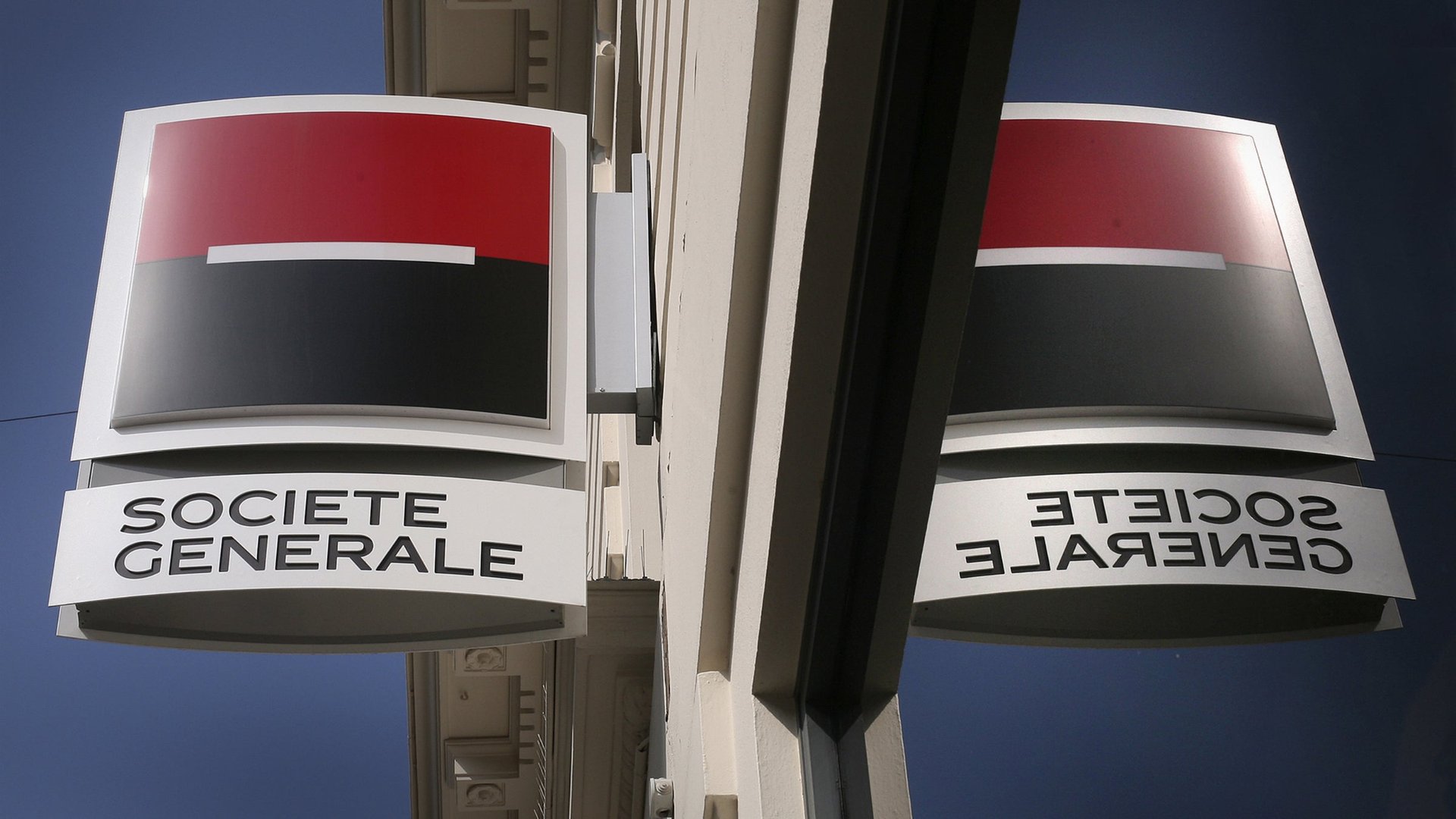Troubled European banks aspire to be more boring like everyone else
France’s Société Generale and Dutch ING Groep today both attempted to prove to investors that they were on the path to a new banking model, following their UK- and US-based peers in focusing on the boring side of banking. Looking to hold more deposits, seek out more customers, and expand their retail businesses, the banks cited visions of the future that sound a lot like Barclays’ and Morgan Stanley’s plans.


France’s Société Generale and Dutch ING Groep today both attempted to prove to investors that they were on the path to a new banking model, following their UK- and US-based peers in focusing on the boring side of banking. Looking to hold more deposits, seek out more customers, and expand their retail businesses, the banks cited visions of the future that sound a lot like Barclays’ and Morgan Stanley’s plans.
But they’ll likely have an even tougher time than others in reaching that promised land, given intense pressures to cut costs and shore up their capital.
SocGen says it will add three new divisions—one of them (surprise!) encompasses corporate and personal wealth management, the same activities many US and UK banks increasingly covet. Although it paid off its financial crisis bailout in 2009, the bank is under strong pressure to get rid of assets Worth €23.57 billion ($31.77 billion) by market capitalization, SocGen has disposed of €16 billion of its loan portfolio over the last year and €19 billion in legacy assets in the last 18 months. That’s in part to meet new capital standards imposed by EU regulators to mitigate the risks of bank failure. Although SocGen stresses that it’s retooling its operations, the sheer scale of its divestments suggests that “refocusing” should be considered flat-out “downsizing,” and in a big way.
ING is also expanding its personal and private banking divisions. The €34.26 billion ($46.18 billion) company by market capitalization divested a reasonably modest €1.71 billion in assets in 2012. Late last year, it won concessions from EU regulators to extend the terms of its 2008 bailout, giving the company until 2015 to pay back the €10 billion it borrowed and until 2018 to sell its insurance and investment management operations. This has given the firm some leeway to retool itself, albeit under the oversight of regulators.
The world of global banking has been shifting away from riskier operations like trading that were the source of major headaches in recent years. But it’s unclear how well European banks will be able to follow suit and develop new divisions. Their exposure to the euro crisis continues to drag on their performance, and the struggle to raise fresh capital could easily handicap efforts to invest for less risky growth.